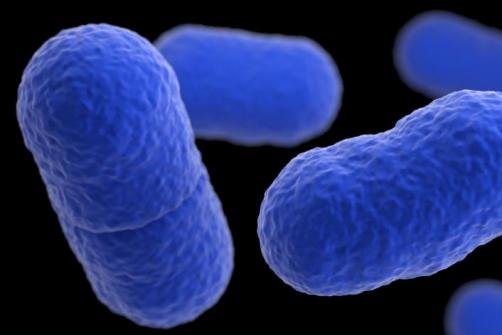Listeria monocytogenes, the common food-borne bacteria depicted in this illustration based on electron microscope imagery, can cause miscarriage, stillbirth and premature labor in pregnant women. Photo by CDC/James Archer
Feb. 21 (UPI) -- New research from the University of Wisconsin-Madison has shown the food-borne bacterium listeria may increase the risk of miscarriage in early pregnancy.
Listeria can be found in unpasteurized milk, soft cheese, raw sprouts, melon and deli meats not properly handled. Listeria sickens 1,600 Americans each year, according to the Centers for Disease Control and Prevention.
"For many years, listeria has been associated with adverse outcomes in pregnancy, but particularly at the end of pregnancy," Ted Golos, a UW-Madison reproductive physiologist and professor of comparative biosciences and obstetrics and gynecology and co-author of the study, said in a press release. "What wasn't known with much clarity before this study is that it appears it's a severe risk factor in early pregnancy."
Although the number of Americans who get listeria annually is relatively small, it mostly affects vulnerable groups such as the very young and very old.
"The problem with this organism is not a huge number of cases," Charles Czuprynski, a UW-Madison professor of pathobiological sciences and director of the UW-Madison Food Research Institute and co-author of the study, said in a press release. "It's that when it is identified, it's associated with severe outcomes."
Bryce Wolfe, UW-Madison graduate student, was lead author of the study.
For the study, four pregnant rhesus macaques at the Wisconsin National Primate Research Center were fed doses of a strain of listeria that caused miscarriage, stillbirth and premature delivery in 11 pregnant women in 2000.
The monkeys did not show any obvious signs of listeria infection prior to their pregnancies coming to an abrupt end, though tissue samples from the placenta taken after each monkey had intrauterine fetal death showed listeria. The placenta usually prevents transmission of bacteria along with the endometrium, or lining of the uterus.
"It should be a barrier," Golos said. "But we're hypothesizing that the maternal immune system's attempt to clear the bacteria actually results in collateral damage to the placenta that then allows the bacteria to invade the fetus."
Researchers believe listeria could be responsible in some miscarriages that have no diagnosed cause.
The study was published in mBio.















